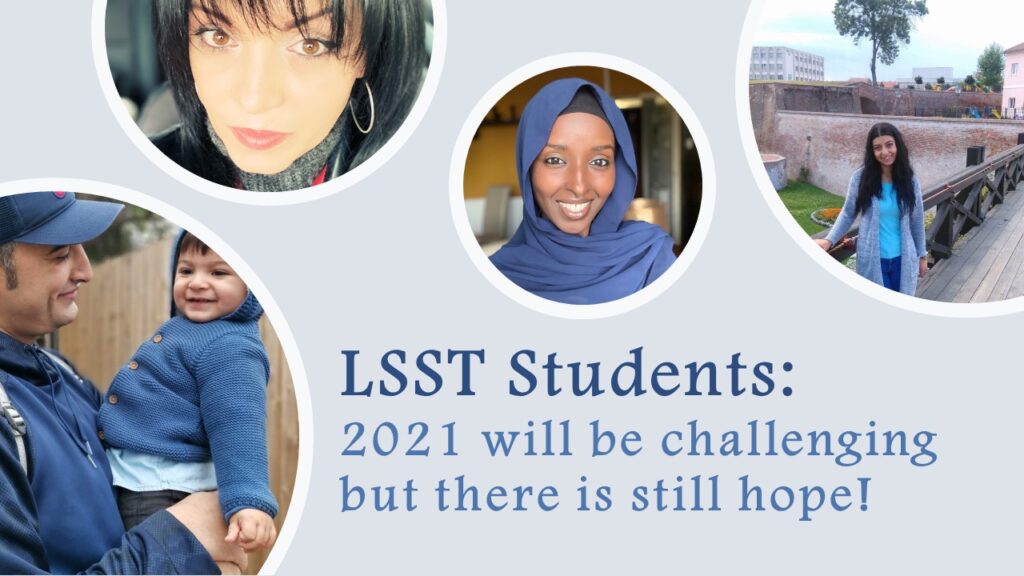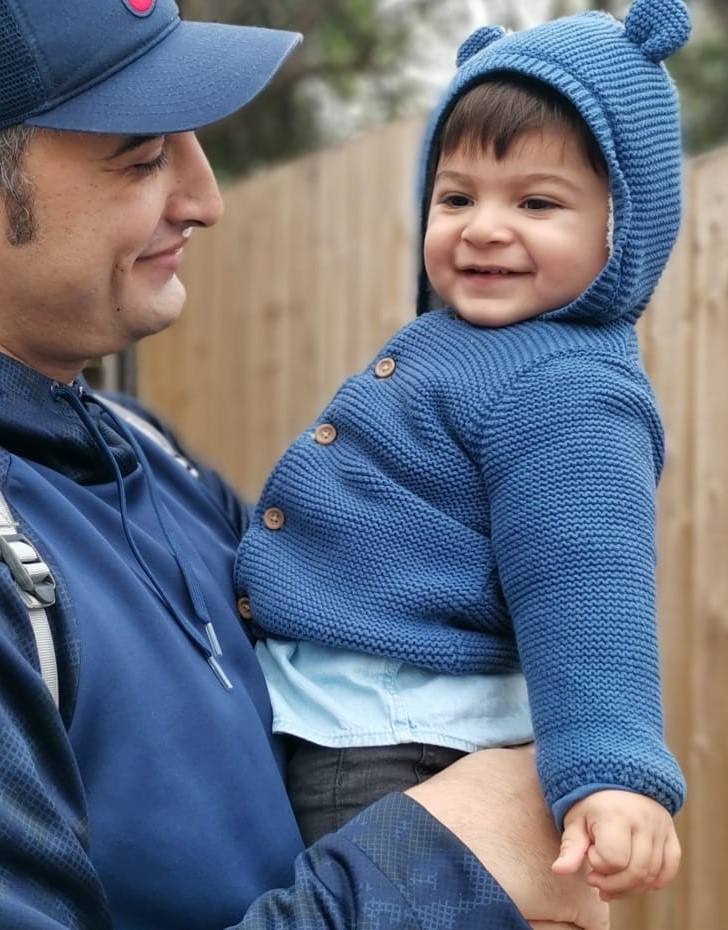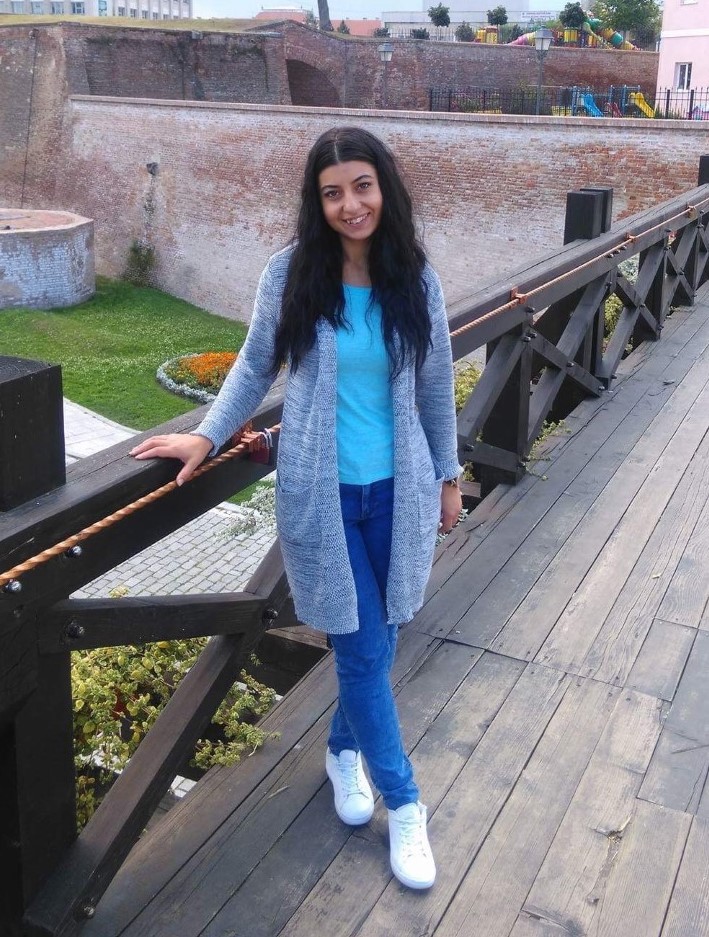LSST Students: 2021 will be challenging but there is still hope!
By Kunal Chan Mehta | Article Date: 11 January 2021

As we cautiously enter 2021, the task of overcoming the coronavirus spectre continues to stand before us. But 2020, a year like no other, has crafted opportunities for hope and aspiration for LSST’s students.
‘The sudden coronavirus pandemic overwhelmed many of us during a devastating and unthinkable year,’ said Irina Barariu, LSST’s Student Union President. ‘But although 2020 was the year the world ‘broke’, 2021 will be remembered as the year that we put it back together.’
Irina added: ‘We are a new phenomenon of digital students. At LSST, through virtual support systems, we harnessed a common collective effort that minimised the colossal challenges created by Covid-19. This year we will add even more solutions to pass through 2021 as its beaux-esprits.’
Speaking about peer support groups at LSST, Patrick Gander, a Business degree student at the Elephant and Castle campus, said: ‘My peers at LSST have inspired me. We will not let anything get us down. From mindfulness to robust confidence-building, e-learning is the most effective way for us to keep connected. Like Irina, I am sure 2021 will see sizable improvements across the tech spectrum – and this is something to look forward to.’
We enter 2021 stronger!
‘What 2021 holds is anyone’s guess. But we enter it strengthened from our practised pandemic living, learning and working,’ says Ayan Dualeh, a Health and Social Science degree student at our Birmingham campus. ‘2020 was a year of emotional aerobics that has, paradoxically, gifted us with the resilience to embrace this year head-on.’
Ileana Pastorcici, a Health and Social Science student at Luton campus, said: ‘The pandemic has not been easy for anyone. Lives, practices and hefty segments of the global economy continue to be devastated and utterly upended. But regardless of so much loss, 2021 will help us become better at adjusting and accepting.’

Momentum will not be lost!
Discussing long-term effects of lockdowns, Ileana emphasised: ‘We have to be conscious that the longer we stay in lockdown, the harder it will be for us to come out of lockdown.’
Ayan Dualeh, a Health and Social Science degree student at Birmingham campus, cautioned: ‘The pandemic’s ongoing pressure on British society and how we behave may soon tire. I feel that 2021 will be about doing and demanding more as we adapt to an accelerated pace of change.’

Florin Negrut, a Business degree student from our Elephant and Castle campus, added: ‘2020 offered us more time with our family and for those ‘other’ things we always wanted to do but did not have the time for before. But as these activities are getting crossed off the to-do list, we have to ensure we have suitable substitutes.’
Crisis leads to change.
‘Innovation flourishes during disasters,’ emphasised Ileana Pastorcici, a Health and Social Science student from the Luton campus. ‘The catastrophic 1918 pandemic, the Great Depression, World War I and World War II all marked their generations with wide but hard-to-predict effects.’
Florin agreed and went on to signify that from crises, benefits arise: ‘The struggle and catastrophe of World War II led to the creation of the UN and WHO, strengthened women’s rights, instigated medicinal discoveries and technological computer developments that directly benefit us today.’
Referring to post-lockdown 3, Shaira Khanam, a Health and Social Science degree student at the Birmingham campus, added: ‘I am convinced that our post-lockdown sacrifices are doing the same for future generations. Our pandemic adaptations have accelerated existing trends, like the development of vaccines, a cashless society, remote working and online shopping.’
Janaina Martins, a Health Promotion and Social Care degree student from our Wembley campus, said: ‘If you want to influence another person’s behaviour for the better, make it easier for them to do that desired thing. 2021 will be about simplification and making things easier. 2020 was hard enough!’.
Clear and credible communication.
Marius Mihaescu, a Business degree student at the Birmingham campus, said: ‘Communication chaos has surrounded Covid-19 from the start – so people have filled the void with random views from family and friends on social media. Covid-19 has drawn many priorities to the fore – but not clear, consistent and credible information. I anticipate that 2021 will be the year for credible information.’
When asked about possible solutions, Marius espoused: ‘Effective governmental communication is important as it influences how people react during a pandemic. We have started to understand that opinions are not facts and have demanded governmental communication to be open and transparent, clear and simple and to acknowledge any uncertainty.’
Janaina Martins, a Health Promotion and Social Care degree student, Wembley campus, said: ‘I am passionate about promoting health and LSST healthcare students have utilised our healthcare and academic positions to inform and educate and drive down misinformation to advance public health.’ Janaina added: ‘For example, many videos circulate on the internet perpetuating myths about empty hospital corridors. Hospitals provide care for patients in wards – not in corridors!’.

Carmen Gheorghiu, a Business degree student from our Birmingham Campus, added: ‘Mixed messages are commonplace and irritating. Misinformation ‘superspreaders’ are thriving on social media. This year will be about challenging or disregarding such misinformation.’
Hope in isolation!
Alexandra Iorga, a Health and Social Science student, Luton campus, said: ‘2020 has taught us that the public, economies and democratic life can not be locked down for long because restrictions begin to chafe, and the public command a return to normalcy from isolation.’

Roxana Elena Ulmeanu, a Business degree student at the Luton campus, said: ‘We have to use what we learned in 2020. I tested positive for Covid and despite professional support, I was shocked and afraid. I was cut off from my children and family while self-isolating. But now, through social media, I help others understand, accept and overcome the pandemic’s silent epidemic of loneliness and isolation.’
LSST’s Deputy CEO, Mr Mohammed Zaidi, reviewing the student perspectives, surmised: ‘At LSST we are good at a lot of things, and we should rightly welcome 2021 with plenty of aspirations. We cannot undo the many tragic things that we want to, but we can reflect on the year that was, and learn from the lessons that it imparted on us. We will continue to persevere because of our LSST family spirit, unity, strength and resolve. Please remember to continue to seek community. Do not go it alone.’
Further reading:
COVID-19 lockdown: consolidating a student mindfulness model: https://www.lsst.ac/news/pact/
How Students Can Think Positive During COVID–19: https://www.lsst.ac/blogs/positive_thinking/
How Students Can Confront COVID-19 Stress Whilst Studying From Home: https://www.lsst.ac/news/covid_19_stress_guide/
Mental Health in Higher Education and the Sector Challenges Ahead: https://www.lsst.ac/blogs/mental_health_in_he/.





they are very strong points and I am totally agree with every single comments.